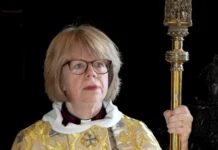The Board of Inquiry has determined that there is probable cause for canonical charges against The Right Reverend Ronald Jackson to be brought to an ecclesiastical trial.
Background and Timeline
In November of 2019, as the Archbishop’s Office looked into information that had been brought forward, The Rt. Rev. Ronald Jackson, then Bishop of the Anglican Diocese of the Great Lakes, went on administrative leave to ensure the integrity of an investigation and allow for due canonical process.
In January of 2020 Bishop Jackson resigned his role as the diocesan bishop due to health reasons, while the provincial process continued. Following the canonical process outlined in Title IV, Articles of Presentment were filed, and the Board of Inquiry has now finished its work.
Board of Inquiry’s Findings
According to canon, “If in the judgment of two-thirds of the Board of Inquiry there is probable cause to present the accused Bishop for trial for violation of Canon 2 of this Title, it shall make a public declaration to that effect (Canon IV.4(6)).”
The Board of Inquiry did not find evidence that any criminal or civil laws had been broken.
However, the Board of Inquiry has unanimously determined that there is probable cause for the accused to be brought to ecclesiastical trial regarding:
1. Sexual Immorality (Canon IV.2(6)).
2. Conduct giving just cause for scandal or offense (Canon IV.2(4)).
3. Willful refusal to follow a lawful Godly Admonition (Canon IV.2(12)).
4. Violation of ordination and consecration vows of true and canonical obedience to the Archbishop (Canon IV.2(3)).
Canonical Process
When a Board of Inquiry has determined probable cause to proceed to trial a bishop may:
1. Voluntarily submit to the discipline of the Church on all accusations in the Presentment;
2. Voluntarily submit to the discipline of the Church on some accusations and proceed to trial on the others; or
3. Proceed to trial on all of the accusations in the Presentment
What Happens Next?
Bishop Jackson has been informed of the Board of Inquiry’s decision. If the matter should proceed to trial, the Court for the Trial of a Bishop will be called together. Its membership consists of the three bishops, two presbyters, and two lay persons which have been elected by the Provincial Council.
The canons afford an accused bishop the protections of due process, a trial, and the opportunity to appeal any decision. If a bishop voluntarily submits to discipline or is found guilty by the ecclesiastical court, the sentencing is carried out by the College of Bishops in accordance with Title IV.8(3).
Archbishop Beach asks for prayer for all involved in this procedure including Bishop Jackson and his family.



